All of us are guilty of occasionally putting our child in front of a screen so we can go to the bathroom or put the groceries away, but the regular use of devices to distract, soothe, or busy a child may come with unforeseen consequences. The use of technology with very young children (0-5) is an area of research that is just beginning to form a consensus on the impact of new media on child development. The American Academy of Pediatrics recommends limiting the use of screens with young children, and solitary screen time is discouraged altogether. They encourage caregivers to co-view or co-play with their child.
Adults can too readily divert children from feeling and expressing their emotions by handing them a device instead of supporting them in learning internal coping mechanisms. Experts warn against the use of new media as a “digital pacifier,” noting that it impedes a child’s ability to self-soothe and increases the likelihood of dependency on devices to regulate emotion. Screens may also inhibit children in open-ended imaginative play because they become accustomed to having predetermined characters with histories and situations provided for them.
Children learn to make sense of their world through play and use play as a means to learn to process emotions. Children’s brains develop through human interaction, hands-on experiences, and whole-body learning. Free child-driven play is vital to the cognitive, physical and social-emotional well-being of children. Increasingly, research confirms that unstructured outdoor play is the best way to support early childhood development.
Summer is a great time to let kids explore nature! So, put down the smartphones and step into the great outdoors. Here are some books about nature play you can check out:
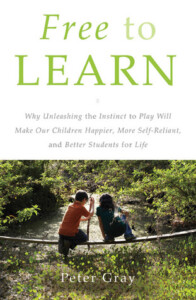
Free to Learn: Why Unleashing the Instinct to Play Will Make Our Children Happier, More Self-Reliant, and Better Students for Life by Peter Gray (2013; 247 pages).

There’s No Such Thing as Bad Weather by Linda Åkeson McGurk (2017; 285 pages).
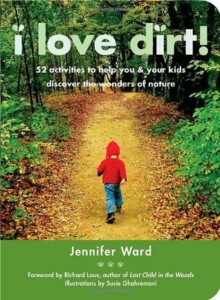
I Love Dirt!: 52 Activities to Help You and Your Kids Discover the Wonder of Nature by Jennifer Ward (2008; 153 pages)
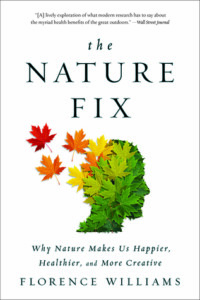
The Nature Fix: Why Nature Makes Us Happier, Healthier, and More Creative by Florence Williams
Downloadable e-books available through Hoopla:
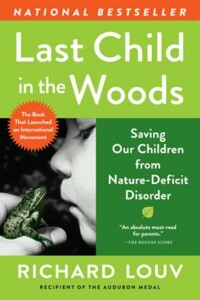
The Last Child in the Woods: Saving Our Children from Nature-Deficit Disorder by Richard Louv (2008; 416 pages).
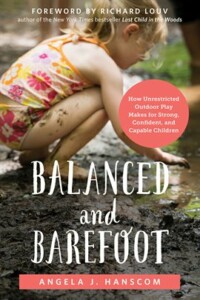
Balanced and Barefoot by Angela J. Hanscom (2016; 240 pages).
Happy trails!
— Janet, Youth Services Librarian
